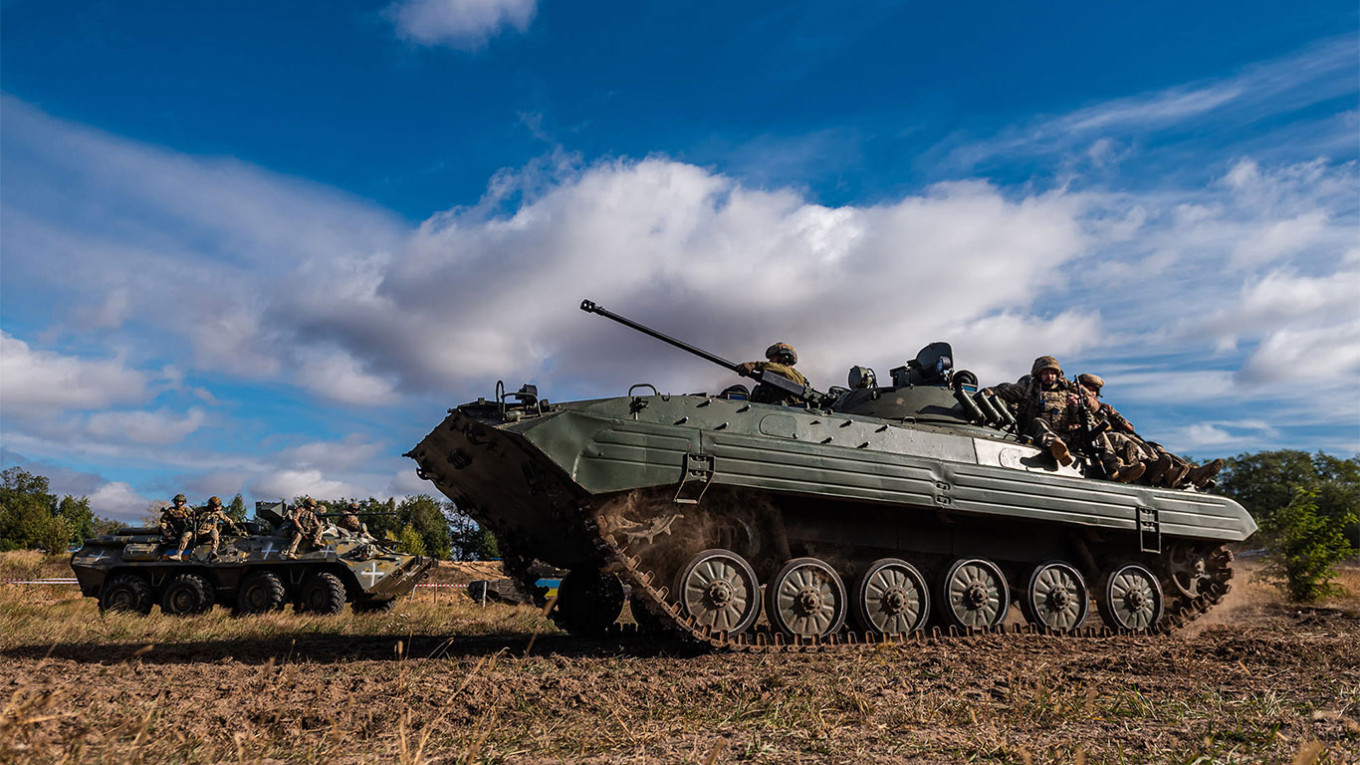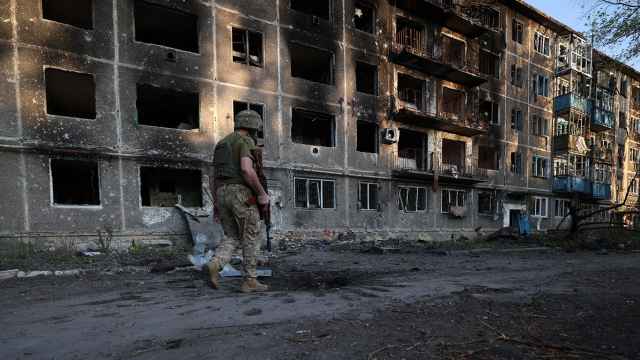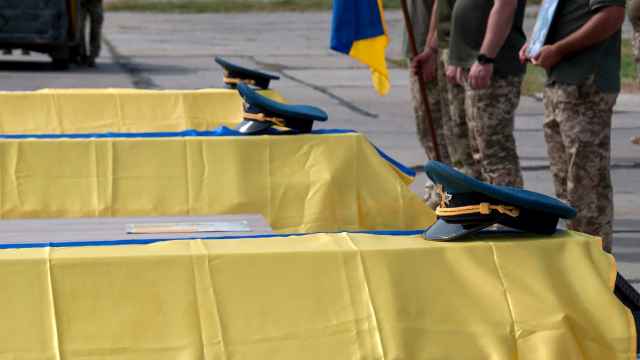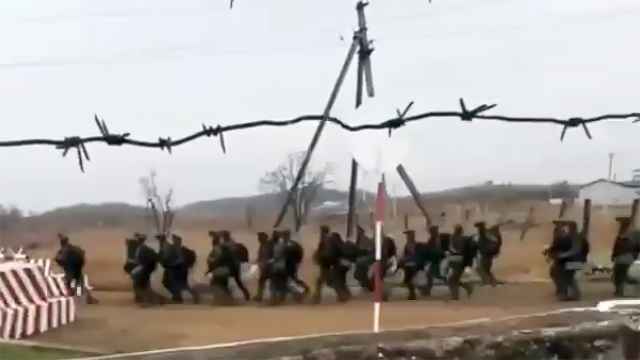The commander of Ukraine’s Armed Forces, General Valery Zaluzhny, admitted in a recent interview with The Economist that expectations of a successful Ukrainian counteroffensive were, to put it mildly, overly optimistic. The Ukrainians have run into a powerful line of Russian defense, and the war has finally turned into one of attrition. Ukraine urgently needs new solutions, a new strategy and a ready supply of high-tech weaponry to advance its position.
This sad situation has not come as a surprise to anyone following the course of the war. The Ukrainian army learned a lot and achieved impressive victories in 2022. Since then, they have been unable to repeat those successes. To a large extent, the problem lies in the chronic under-equipping of the Ukrainian Armed Forces, which stems from the indecisiveness, and often cowardice, of Kyiv's Western partners to supply the desperately needed arms and equipment.
As has been said many times — and what Western leaders themselves recognize — President Vladimir Putin's attack on Ukraine is not a local conflict rooted in territorial disputes between two neighboring states. It is an attack on the very foundations of the existing world order, and an aggressive attempt to rewrite the rules that underpin it.
Putin's ideal world is one of “war of all against all,” where might makes right and powerful nations form spheres of influence, ensconcing themselves within an entourage of satellite states. This forms the basis of multipolarity, a concept that Russian diplomacy has peddled for decades. In this effort, Moscow finds support among allies like China, Iran and North Korea as well as many countries in the Global South who are particularly in favor of the idea of solving political problems by force. That is, unless that force is directed at them.
History abounds with examples of regional conflicts exploding into existential cataclysms. World War I was started by the Austro-Hungarian Empire’s attack on Serbia, which to many at the time seemed a fairly local affair. Germany’s invasion of Poland kicked off World War II. Before that, Hitler got away with rejecting the Treaty of Versailles, annexing Austria, remilitarizing the Rhineland and more. The leaders of Britain and France even abandoned Czechoslovakia to Nazi Germany in 1938. All of this was in the name of "a long peace for generations to come." That peace lasted for about a year.
Western countries have taken an ambivalent position since the start of the war in Ukraine. True, they have imposed round after round of sanctions on Russia and declared they would support Kyiv for as long as it takes. But on the other hand, this support had clear red lines. Ukraine is not a member of NATO, so the bloc had no obligation to come to its aid. Indeed, Kyiv’s allies have ruled out launching direct military operations. This fear of escalation, which NATO strategists for some reason decided to make explicit to Moscow, still dictates their policy.
And then began the fanfare around all kinds of arms and equipment being sent to Kyiv. HIMARS systems were described as a sort of miracle weapon, and then so were German-made Leopard tanks. More recently, hopes have been pinned on ATACMS missiles and, finally, on F-16 airplanes. Apparently, the plan is that these weapons systems alone will drive Russian troops out of Ukraine.
But no single weapon can win a war. At least not when they are supplied in such small numbers and so slowly. What does win wars is the ability to use all available forces and means at once in the best possible way. Any military textbook will tell you this.
The failure of Ukraine’s counteroffensive was the obvious outcome of NATO's half-hearted policy of supporting Kyiv, which is based on the two paradoxical assumptions that the Russian army is weak on the battlefield, but the West still has reasons to fear escalation. It is this fear that paralyzes any effective assistance to Ukraine.
Unsurprisingly, the Ukraine debacle is leading more people to call for both sides to negotiate a peace agreement. The fact that Putin has repeatedly shown he will neither negotiate nor respect international agreements does not give these people pause for thought.
Some experts even suggest giving Ukraine some kind of security guarantee — without admission to NATO — in exchange for territorial concessions to Russia in the hope of ending the war. What kind of guarantees can these be? Without recalling the notorious Budapest Memorandum, we must honestly state that the only way to stop Putin's aggression against the remnants of Ukraine has to be an unequivocal commitment from NATO countries to enter the war against the aggressor. Only the prospect of encountering U.S. troops on the battlefield, which U.S. President Joe Biden has ruled out, could have a sobering effect on Putin, whose worldview is inspired by the weakness of the West. And even then, it is no longer a sure thing.
However, it is not clear why such guarantees cannot be given right now. But the only thing that Western strategists are not afraid of is demonstrating their fear of any possible slightest serious escalation of the war.
Any outcome of the war without a return to the status quo, at least as of Feb. 23, 2022, would mean defeat for Ukraine. For Russia, retaining the captured territories would be a tangible victory. Thus, the signing of any peace agreement will consolidate Putin’s victory over not only Ukraine, but over the entire West, which loudly promised to help Kyiv resist aggression in every possible way. Thus, Putin will turn into a man who inflicted a shameful defeat on the United States and all of NATO. This will not go unnoticed in a world where many openly hope for such an outcome.
Ukraine's surrender would also mean NATO's surrender to a country whose economic resources are no match for the combined power of the West. But the amount of resources you have is not so important as whether you are willing to devote them to your goal.
In addition, NATO’s failure to ensure adequate production of weapons and ammunition has led to available stocks becoming exhausted. How did NATO plan to fight off Russian aggression without the means to produce everything necessary?
Recently, the renewed tensions in the Middle East have shifted international focus away from Ukraine. It should be noted that Israel is a very different country from Ukraine. It is quite capable of eliminating Hamas with its own forces, as long as there is no threat of a full-scale invasion by the surrounding Arab states. Since Hamas is unlikely to escalate the situation to a nuclear conflict, the West sees it as safe enough to send aircraft carriers to support Israel.
It is more than likely that Russia will be emboldened further as a result of calls for Ukraine to make peace. Washington has shown it is unwilling to make room for others in its strategic interests. Seeing this, countries that would have relied on the United States for protection against a Russian invasion will realize that in such an event, Washington would rebuke Moscow with little but stern warnings and more financial sanctions.
It is hard to imagine Biden sending troops to Estonia, for example, in the event of a Russian invasion. That would involve direct military confrontation with a nuclear power. NATO is turning into a paper tiger by the day — and the whole world can see it. This increases the likelihood that there will soon be more actors willing to test NATO's strength.
One of Putin’s conditions for a ceasefire, even a temporary one, would be a commitment from the West to lift all or at least part of the sanctions on Moscow. This would leave the U.S. and EU in an awkward position if their unwillingness to do this jeopardizes a peace agreement when Moscow says they are open to one. It hardly needs to be said that lifting sanctions on Russia after signing documents recognizing the defeat of Ukraine will finally undermine the credibility of the West in the eyes of the world community.
In 2022, history offered the West an opportunity to win World War III on foreign territory, thus preventing the war from spreading around the world. The West’s leaders apparently decided to refrain from this. The result will be the end of the era of the liberal world order built on the founding of the United Nations, including the Universal Declaration of Human Rights. Together with the departure of this order, the quiet, safe life enjoyed by the U.S. and Europe will be gone. They only have themselves to blame — for their fear and unwillingness to stand up for that very peaceful life.
The West doesn't want to fight — so the war will come to them. As Winston Churchill said, appeasing an aggressor means being “defeated without starting a war.” Again, as he said, appeasement has thrown the equilibrium of Europe into disarray, leaving Western democracies “wanting” in the face of aggression. Once again, history is teaching us that nobody learns from it.
A Message from The Moscow Times:
Dear readers,
We are facing unprecedented challenges. Russia's Prosecutor General's Office has designated The Moscow Times as an "undesirable" organization, criminalizing our work and putting our staff at risk of prosecution. This follows our earlier unjust labeling as a "foreign agent."
These actions are direct attempts to silence independent journalism in Russia. The authorities claim our work "discredits the decisions of the Russian leadership." We see things differently: we strive to provide accurate, unbiased reporting on Russia.
We, the journalists of The Moscow Times, refuse to be silenced. But to continue our work, we need your help.
Your support, no matter how small, makes a world of difference. If you can, please support us monthly starting from just $2. It's quick to set up, and every contribution makes a significant impact.
By supporting The Moscow Times, you're defending open, independent journalism in the face of repression. Thank you for standing with us.
Remind me later.








